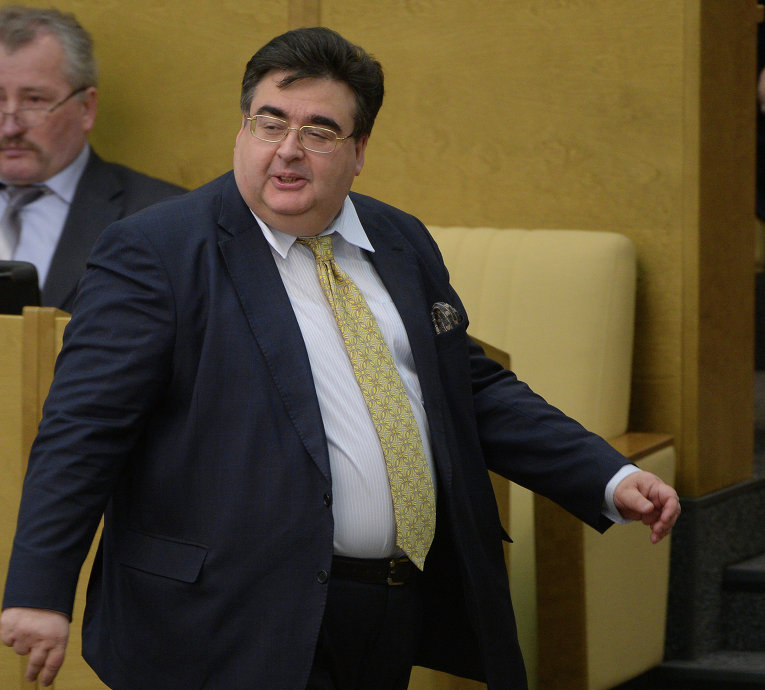MOSCOW, June 10 (RAPSI) – Russian investigators may initiate criminal proceedings against controversial State Duma lawmaker Alexei Mitrofanov on charges of attempted fraud. Sufficient evidence has been gathered against the MP, First Deputy of the Prosecutor General's Office Alexander Buksman said Tuesday at the State Duma meeting.
On Tuesday, the State Duma lawmakers have to consider the Prosecutor General’s Office’s request to strip the MP of his parliamentary immunity.
In February, Russia’s Prosecutor General’s Office reportedly refused to grant a request filed by the Investigative Committee to strip Mitrofanov of his parliamentary immunity. The prosecutor’s office said there was no incriminating evidence against the MP. The investigators planned to question and possibly charge the MP in a fraud case involving Vyacheslav Zharov, co-founder of developer Arktur-Stroy.
The Investigative Committee wrote that it had evidence of Mitrofanov’s involvement in a crime that is defined in the Criminal Code as “attempted fraud as a member of a criminal group,” and that two of his alleged accomplices had already been given prison sentences.
In 2007, Arktur-Stroy borrowed $48 million from Russian Commercial Bank (RBC) to build a residential complex in Moscow. But the project was stalled because of a conflict between Arktur-Stroy and its partner, by which time half of the non-existent apartments had been sold.
Zharov decided to withdraw from the partnership and demanded 113 million rubles ($3.3 million) for his stake in the company. A commercial court granted his request in 2010, but Arktur-Stroy management filed an appeal against the ruling. RBC, which had merged with Gazprombank, then demanded that Zharov repay the loan.
Mitrofanov’s aide Alexander Derevshchikov and his accomplice, Rashid Sautiyev, told Zharov they would help him for RUB 2.2 million ($64.083). Both men were detained on May 12, 2012 in a hotel room where the businessman was handing over part of the amount.
Mitrofanov, who was present at the meeting, was released because he didn’t take a direct part in the negotiations and also because he enjoyed parliamentary immunity, the investigators said.
In August 2013, the Meshchansky District Court of Moscow found Derevshchikov guilty of attempted fraud and sentenced him to two years in prison. Several days before that, Sautiyev was sentenced to three years’ imprisonment and fined 500,000 rubles (over $14,600).



